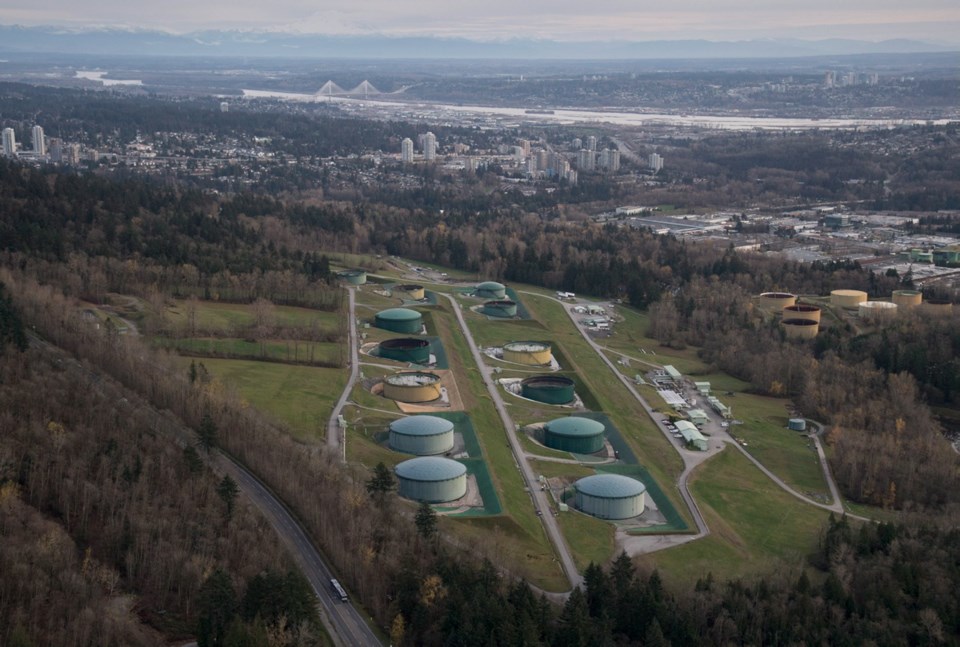The term “national interest” is showered around the Kinder Morgan pipeline like confetti. It is received wisdom that it must be so; everyone says it is so. On that fact hinges the outrage against a B.C. government that has the audacity to represent its citizens’ interests.
Few people have noticed that the National Energy Board’s use of the term “national interest” has no similarity to a common-sense understanding. The expert panel on the NEB commissioned by the Trudeau government made this point. “National interest” in NEB-land means that the pipeline ships stuff and they like it.
In the 1990s, in an NEB review of a pipeline to ship natural gas through New Brunswick to markets in the U.S., the Conservation Council of New Brunswick intervened to argue that some of the natural gas should be diverted locally, benefiting New Brunswick by reducing reliance on more carbon-intensive fuels for power generation. No, said the NEB. Energy security for Canada and environmental benefits were not part of its “national interest” test.
In the NEB Kinder Morgan hearings, the largest union in the oilsands, Unifor, intervened. You might be forgiven for assuming that a union, interested in jobs, intervened to ensure Kinder Morgan got built. You would be wrong.
Unifor attempted to enter evidence that building Kinder Morgan would cost jobs. The Alberta Federation of Labour represents 170,000 workers in Alberta. The AFL is also against Trans Mountain’s expansion because of the jobs and economic wealth lost down the pipeline.
Shipping out unprocessed solid bitumen to refineries in other countries ships out Canadian jobs at the same time. And it increases the carbon footprint of the product. In 1953, when the Trans Mountain pipeline was first built, it was not for export. It shipped crude to four refineries on the Lower Mainland.
Shipping solid bitumen diluted with toxic fossil-fuel condensate for export bypasses the last remaining refinery. That refinery cannot process bitumen. It has already cut its workforce by 30 per cent, and if Kinder Morgan goes ahead, it will likely close.
The NEB refused to accept the evidence. It ruled that its mandate did not include jobs, or climate, or upstream or downstream impacts.
So “national interest,” according to the NEB, does not include energy security, net employment benefits, environment, climate, GDP or anything other than getting the pipeline approved.
The claim that the Kinder Morgan expansion would create 15,000 jobs is thrown around in the cloud of confetti. Kinder Morgan’s submission to the NEB said it would employ an average of 2,500 construction workers a year for two years (Volume 5B of its application).
B.C. economist Robyn Allan went on a quest for the source of the claim. (“15,000 Trans Mountain jobs an illusion,” Aug. 31, 2017.) She concluded: “Trans Mountain’s 15,000 construction workforce jobs are a scam. The more realistic figure is less than 20 per cent that size. It is a betrayal of the public trust that [Justin] Trudeau, [Jim] Carr and [Rachel] Notley so eagerly got behind Kinder Morgan’s manipulated jobs figure without checking to make sure it made any sense.”
The legitimacy of the B.C. government’s concern about the behaviour of bitumen mixed with diluent in the marine environment is underscored by the Royal Society of Canada scientific review, as well as by Fisheries and Oceans studies using actual sea water. There is no technology to clean up a dilbit spill.
Natural Resources Canada is shamefully attempting to buttress Kinder Morgan’s own shoddy studies, conducted in Alberta in freshwater tanks with salt mixed in. NRCan studies are also in tanks in Alberta.
What DFO found in real-world conditions is that the diluent separated from the bitumen and the bitumen formed oil balls around bits of sand and sediment and sank. By all means, let Kinder Morgan spill its dilbit in tanks of water in Alberta. But it must not put our marine environment at risk.
What might be in the national interest? Certainly, creating a petulant trade spat between provinces is not. Ignoring Indigenous rights is not.
Let’s think like a country. We need an energy policy that puts energy security, jobs and climate action as shared goals. Build upgraders and refineries in Alberta, sell finished product across Canada; end the import of foreign oil; and plan for an orderly phase-out of fossil fuels.
Decades from now, we might realize that a molecule of carbon is more valuable for petrochemicals than for burning. But for now, please, no one should be able to claim “national interest” without a shred of evidence.
Elizabeth May is MP for Saanich-Gulf Islands and leader of the Green Party of Canada.



